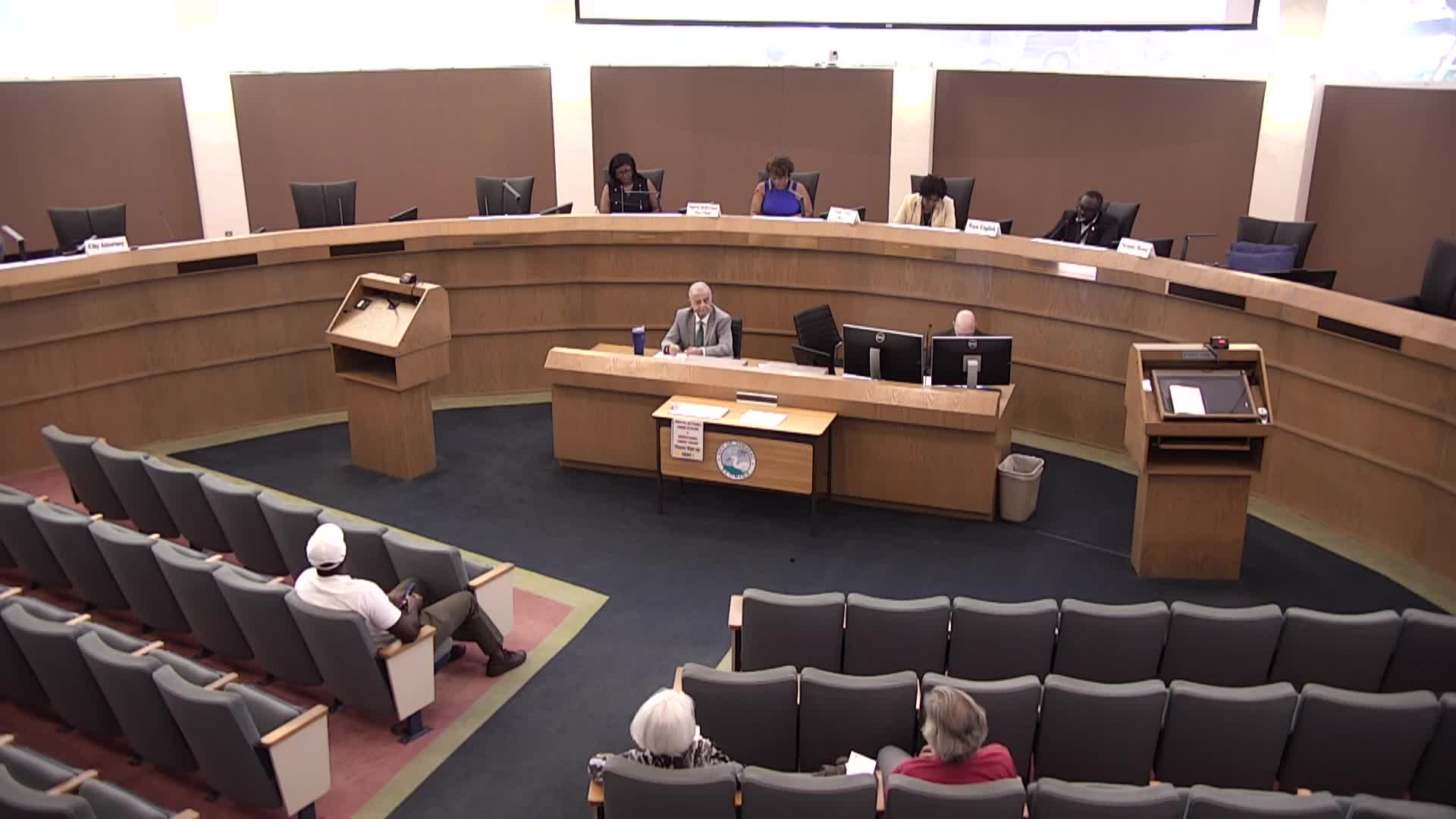Planning board forwards zoning update to implement Live Local Act; reduces required nonresidential share to 10%
October 01, 2025 | Tamarac, Broward County, Florida
This article was created by AI summarizing key points discussed. AI makes mistakes, so for full details and context, please refer to the video of the full meeting. Please report any errors so we can fix them. Report an error »

The Tamarac Planning Board on Wednesday voted 4-0 to forward a zoning text amendment to the City Commission that updates city code to comply with the Live Local Act and subsequent state changes.
Maham Mansour, assistant director of community development, told the board the amendment incorporates provisions of the original Live Local Act and later changes that were enacted in 2024 and 2025. "The Live Local Act passed in 2023 is a major statewide effort to boost affordable housing," Mansour said, summarizing the statute's intent and the local code changes.
The key change is procedural and substantive: municipalities may no longer require a 35% minimum nonresidential component in qualified mixed-use developments; the updated code implements a 10% minimum nonresidential requirement while still requiring developers to provide at least 65% residential. Mansour said the 10% minimum applies to what cities can require, though developers may voluntarily include up to 35% nonresidential if they choose.
The amendment also adds planned development (PD) districts to the eligible zoning categories for qualified mixed-use projects, aligns local parking rules with the state requirement of a minimum 15% parking reduction for sites within a quarter-mile of a major transit stop, and preserves administrative review pathways so eligible projects may be processed without public hearings when the state criteria are met.
Mansour told the board that because Tamarac has less than 20% of its land designated for industrial or commercial uses, qualifying projects must be mixed-use developments. The presentation included a reminder that the Live Local Act ties affordability definitions to area median income and that the statute has associated incentives, including state funding and some tax benefits.
Board members asked clarifying questions about whether the Live Local route is mandatory for affordable housing projects; Mansour said it is optional for developers and that the city has not yet received a complete Live Local application since 2023. Staff also emphasized that some elements remain subject to local review: the city may require a parking demand and circulation study but cannot use that study to impose parking in excess of the state limits.
After discussion, the board voted 4-0 to make a favorable recommendation to the City Commission. Staff recommended the ordinance be scheduled for first reading at the Oct. 22 City Commission meeting and second reading on Nov. 12.
The amendment will allow certain affordable housing projects to proceed via administrative review if they meet state criteria, while preserving neighborhood notification and some local technical review steps.
Maham Mansour, assistant director of community development, told the board the amendment incorporates provisions of the original Live Local Act and later changes that were enacted in 2024 and 2025. "The Live Local Act passed in 2023 is a major statewide effort to boost affordable housing," Mansour said, summarizing the statute's intent and the local code changes.
The key change is procedural and substantive: municipalities may no longer require a 35% minimum nonresidential component in qualified mixed-use developments; the updated code implements a 10% minimum nonresidential requirement while still requiring developers to provide at least 65% residential. Mansour said the 10% minimum applies to what cities can require, though developers may voluntarily include up to 35% nonresidential if they choose.
The amendment also adds planned development (PD) districts to the eligible zoning categories for qualified mixed-use projects, aligns local parking rules with the state requirement of a minimum 15% parking reduction for sites within a quarter-mile of a major transit stop, and preserves administrative review pathways so eligible projects may be processed without public hearings when the state criteria are met.
Mansour told the board that because Tamarac has less than 20% of its land designated for industrial or commercial uses, qualifying projects must be mixed-use developments. The presentation included a reminder that the Live Local Act ties affordability definitions to area median income and that the statute has associated incentives, including state funding and some tax benefits.
Board members asked clarifying questions about whether the Live Local route is mandatory for affordable housing projects; Mansour said it is optional for developers and that the city has not yet received a complete Live Local application since 2023. Staff also emphasized that some elements remain subject to local review: the city may require a parking demand and circulation study but cannot use that study to impose parking in excess of the state limits.
After discussion, the board voted 4-0 to make a favorable recommendation to the City Commission. Staff recommended the ordinance be scheduled for first reading at the Oct. 22 City Commission meeting and second reading on Nov. 12.
The amendment will allow certain affordable housing projects to proceed via administrative review if they meet state criteria, while preserving neighborhood notification and some local technical review steps.
View full meeting
This article is based on a recent meeting—watch the full video and explore the complete transcript for deeper insights into the discussion.
View full meeting